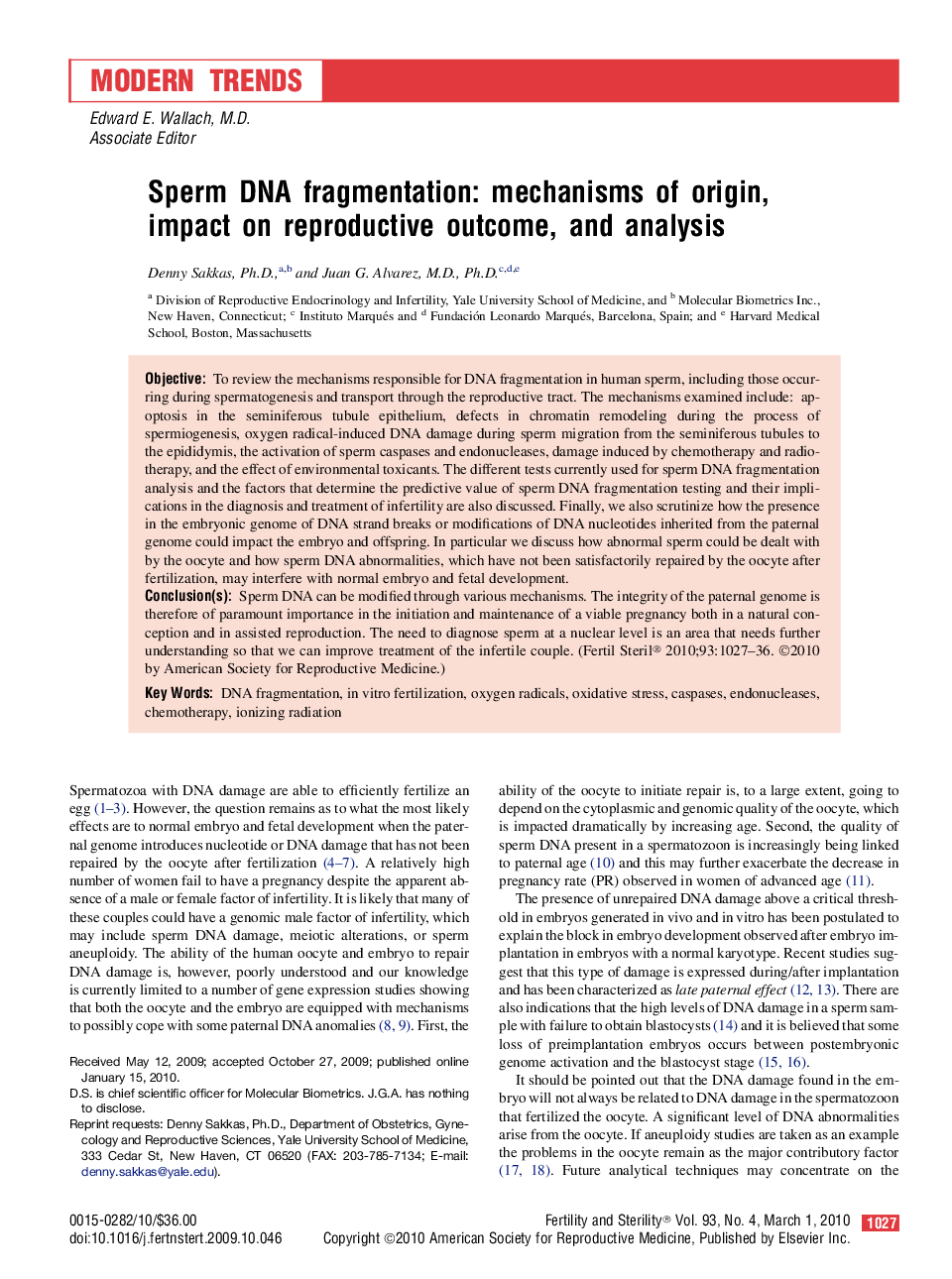| Article ID | Journal | Published Year | Pages | File Type |
|---|---|---|---|---|
| 3933511 | Fertility and Sterility | 2010 | 10 Pages |
ObjectiveTo review the mechanisms responsible for DNA fragmentation in human sperm, including those occurring during spermatogenesis and transport through the reproductive tract. The mechanisms examined include: apoptosis in the seminiferous tubule epithelium, defects in chromatin remodeling during the process of spermiogenesis, oxygen radical-induced DNA damage during sperm migration from the seminiferous tubules to the epididymis, the activation of sperm caspases and endonucleases, damage induced by chemotherapy and radiotherapy, and the effect of environmental toxicants. The different tests currently used for sperm DNA fragmentation analysis and the factors that determine the predictive value of sperm DNA fragmentation testing and their implications in the diagnosis and treatment of infertility are also discussed. Finally, we also scrutinize how the presence in the embryonic genome of DNA strand breaks or modifications of DNA nucleotides inherited from the paternal genome could impact the embryo and offspring. In particular we discuss how abnormal sperm could be dealt with by the oocyte and how sperm DNA abnormalities, which have not been satisfactorily repaired by the oocyte after fertilization, may interfere with normal embryo and fetal development.Conclusion(s)Sperm DNA can be modified through various mechanisms. The integrity of the paternal genome is therefore of paramount importance in the initiation and maintenance of a viable pregnancy both in a natural conception and in assisted reproduction. The need to diagnose sperm at a nuclear level is an area that needs further understanding so that we can improve treatment of the infertile couple.
